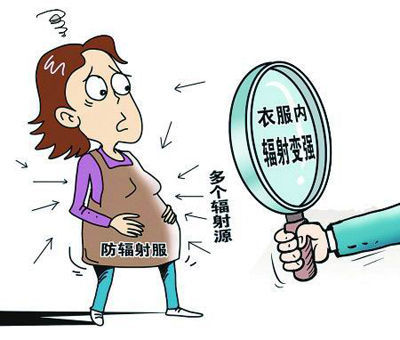(单词翻译:单击)
For a long time it was assumed that anything so miraculously energetic as radioactivity must be beneficial. For years, manufacturers of toothpaste and laxatives put radioactive thorium in their products, and at least until the late 1920s the Glen Springs Hotel in the Finger Lakes region of New York (and doubtless others as well) featured with pride the therapeutic effects of its “Radioactive mineral springs.” Radioactivity wasn’t banned in consumer products until 1938. By this time it was much too late for Madame Curie, who died of leukemia in 1934. Radiation, in fact, is so pernicious and long lasting that even now her papers from the 1890s—even her cookbooks—are too dangerous to handle. Her lab books are kept in lead-lined boxes, and those who wish to see them must don protective clothing.
在很长时间里,人们认为,任何像放射性这样拥有很大能量的现象肯定是可以派上用场的。有好几年时间,牙膏和通便剂的制造商在自己的产品里放入了有放射作用的钍;至少到20世纪20年代,纽约州芬格湖地区的格伦泉宾馆(肯定还有别的宾馆)还骄傲地以其"放射性矿泉"的疗效作为自己的特色。直到1938年,才禁止在消费品里放入放射性物质。到这个时候,对居里夫人来说已经为时太晚。她1934年死于白血病。事实上,放射性危害性极大,持续的时间极长,即使到了现在,动她的文献——甚至她的烹饪书——还是很危险的。她实验室的图书保存在铅皮衬里的箱子里,谁想看这些书都得穿上保护服。
Thanks to the devoted and unwittingly high-risk work of the first atomic scientists, by the early years of the twentieth century it was becoming clear that Earth was unquestionably venerable, though another half century of science would have to be done before anyone could confidently say quite how venerable. Science, meanwhile, was about to get a new age of its own—the atomic one.
多亏第一代原子科学家的献身精神和不惧高度危险的工作,20世纪初的人们越来越清楚,地球毫无疑问是很古老的,虽然科学界还要付出半个世纪的努力才能很有把握地说它有多么古老。与此同时,科学很快要进入一个新时代——原子时代。


